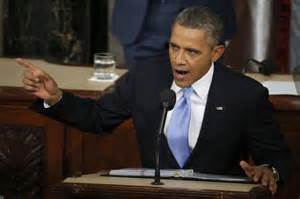Conversation with Noam Chomsky on Syria
![]()
//
annal of the anti-communist left
SURELY THE GREAT INTELLECT REALIZES HE IS OBJECTIVELY HELPING IMPERIAL PROPAGANDA?
What Gives?
My Email Correspondence With Noam Chomsky: 1/1/15 – 3/1/15
[Originally] 3 January 2015 at 11:13
SPOTTER: VANESSA BEELEY
Note: As I understand legal principles. This transcript has not been altered to the extent that it constitutes a misrepresentation of the original source. All alterations are purely cosmetic, i.e. the removal of repetitive back correspondence. Disclosing this correspondence is ONLY an invasion of privacy if the publication contains material that a reasonable person would expect the author (of the said material) to remain private. This is highly unlikely given that Mr. Chomsky’s career involves publicly discussing the very topics featured in this transcript.
Jay Tharappel
Hey, in this interview you state at 4:33.
“The major ground forces that are fighting ISIS are apparently the PKK and its allies in Syria…”
https://www.youtube.com/watch?v=5meC4Z61qGg
By allies in Syria it’s clear you’re referring to the YPG. Just curious why you didn’t mention the Syrian Arab Army, which has been fighting ISIS since its inception?
Noam Chomsky
The Syrian army appears to be pursuing Assad’s own objectives, fighting ISIS being a secondary concern on the ground.
Jay Tharappel
What’s “Assad’s own objectives” and why are they more important than fighting ISIS, in your opinion?
Noam Chomsky
Assad’s own objectives are to stay in power no matter how many Syrians he kills and how much damage he does to the country
Jay Tharappel
What do you make of the efforts made by the Syrian government, over the past four years, to address the legitimate grievances of the Syrian people with a constitutional referendum removing the Baath party’s political monopoly, the parliamentary elections, and the presidential elections of 2014 in which 15.6 million Syrians were eligible to vote, 11.6 million Syrians voted, 10.3 million for President Assad?
Doesn’t this suggest, at the very least, that the status quo is preferable to Syrians over the alternative, which is for the government to fall to sectarian death-squads?
Noam Chomsky
The efforts were a poor joke, particularly while Syria was slaughtering the Syrian people.
Whether the monstrous Assad regime is better than the various possible alternatives – Rojava, ISIS, the now defunct Free Syrian Army, the Syrian democrats who protested repression and then were crushed by violence,… — I leave to you to decide.
Jay Tharappel
There’s much to suggest the Syrian Arab Army (SAA) is NOT slaughtering its own people.
Around 30K SAA soldiers have died in this conflict, which would imply that a significantly larger number of rebels have been killed.
Given the uneven casualty-exchange ratios to be expected between a mechanised army and guerrillas, it’s quite possible that up to 3 or 4 times as many rebels have been killed, which would imply that the majority being killed are armed combatants on all sides.
These claims about the SAA mowing down civilians are provided by unreliable opposition sources as Nir Rosen, who you’ve cited as credible in the past, has already pointed out:
“Every day the opposition gives a death toll, usually without any explanation of the cause of the deaths. Many of those reported killed are in fact dead opposition fighters, but the cause of their death is hidden and they are described in reports as innocent civilians killed by security forces, as if they were all merely protesting or sitting in their homes.” [13/02/2012 Al-Jazeera]
The atrocities committed by ISIS, Al-Nusra, the Islamic Front, the FSA etc. are frequent and uncontested, whereas the crimes that the Syrian government has been accused of committing by the US backed SNC opposition i.e. Houla, Banias, Bayda, Tremseh, have been bitterly contested and crushed by different sources.
The Syrian democrats, far from being “crushed by violence”, have won most of their demands.
They wanted, an end to the Baath party’s political monopoly, an objective constitutional criteria for the licensing of new political parties, an end to sweeping security laws, a constitutional referendum parliamentary elections, and presidential elections – ALL of which have been delivered by Assad’s government in the middle of a violent insurgency.
Now the only people fighting the Syrian state are extremist reactionaries.
If you sympathise with those Syrian democrats, why would you denounce their achievements as a “poor joke”?
Again, out of the 15.8 million eligible voters, 11.6 million voted, 10.3 million voted for President Assad. That’s 88 percent of the vote with a participation rate of 73 percent, which is around 20 percent better than US elections which you encourage people to participate in.
I’m just curious as to why you haven’t vocally opposed US support for death-squads in Syria?
Final question.
Are you, at the very least, willing to voice your opposition to the sanctions on Syria?
These sanctions, on top of the effects of war, have contributed to a sharp devaluation of the Syrian pound and potentially may end up being as damaging as the sanctions on Iraq?
P.S. I wanted to thank you personally for your books which really helped me understand the world as a teenager.
Regards,
Jay Tharappel
Noam Chomsky
Some of this is accurate, the exculpation of the vicious Assad regime is not. I haven’t written about the rather ambiguous US role in Syria (sic)
Jay Tharappel
I asked you a few other questions, Noam.
If you sympathise with those Syrian democrats, why would you denounce their achievements as a “poor joke”? Are you, at the very least, willing to voice your opposition to the sanctions on Syria?
Jay
[*THIS IS NOT PART OF THE CORRESPONDENCE: Admittedly I would have been better off asking him “If you sympathise with those Syrian democrats, and given that they largely achieved their demands, is it fair to dismiss the government’s efforts at reform as a “poor joke”?”]
Noam Chomsky
I notice that you depart from the normal practice, and do not include back correspondence so that the recipient can know what you are talking about. I took the trouble to look it up. You wrote: “What do you make of the efforts made by the Syrian government, over the past four years, to address the legitimate grievances of the Syrian people…”
I responded that “the efforts are a poor joke.”
Jay Tharappel
Hi Noam,
I accidentally deleted everything on that email,hence the absent back correspondence. Sorry about that. Yes, I know you answered that question. Thank you.
I also asked two other questions which I was curious to get your answer on.
They are:
1. If you sympathise with those Syrian democrats, why would you denounce their achievements as a “poor joke”?
2. Are you, at the very least, willing to voice your opposition to the sanctions on Syria?
For context, these were the questions I asked in that long email I sent earlier.
Jay
Noam Chomsky
It seems that you don’t read the letters you receive, which makes correspondence impossible. Take a look at my last letter, and your question 1.
Jay Tharappel
Hi Noam,
Believe you me I’ve read everything you wrote.
I asked you: “What do you make of the efforts made by theSyrian government, over the past four years, to address the legitimate grievances of the Syrian people…”
And you responded with “the efforts are a poor joke.”
The reason I asked you the question, ‘if you sympathise with thoseSyrian democrats, why would you denounce their achievements as a “poor joke”?’, is because earlier you mentioned “the Syrian democrats who protested repression and then were crushed by violence”.
In response to this I pointed out that the demands of the Syrian democrats were all agreed to and implemented by the Syrian government and I cited all the major examples of this.
As such, to suggest (as you did) that they were crushed in any significant political sense is false.
I was also hoping to direct your attention to the irony of you initially expressing sympathy with those “Syrian democrats”, only to then discredit the democratic reforms they demanded and won as a “poor joke”.
If you sympathise with the “Syrian democrats” you have to concede that they got what they wanted, which is good.
If the reforms were a “poor joke” because according to you they were accompanied by the Syrian government “slaughtering the Syrian people”, then I provided separate reasoning for why such a characterisation is false, and am more than happy to provide you with more reasons.
P.S. don’t forget the other question, ‘are you, at the very least,willing to voice your opposition to the sanctions on Syria?’.
Jay
Noam Chomsky
In short, when you asked why I denounce the achievements of the Syrian democrats as a “poor joke,” you knew that I was not referring to them at all, but rather to the Syrian government and your claims about its achievements.
Nothing could show more clearly that your attempt at correspondence is a poor joke.
Jay Tharappel
Hi Noam,
Well yes, obviously I *know* you weren’t referring to the Syrian democrats as a “poor joke” but rather to my claims about the Syrian government’s reforms.
My point is that the Syrian democrats (who we both sympathise with) ended up getting what they wanted, i.e. the series of constitutional reforms I mentioned to you earlier.
Therefore your original contention that the “Syrian democrats”were “crushed by violence” is clearly false given that their demands for constitutional reform were implemented by the government.
To avoid any semantic confusion, I have assumed that the only political significance the term “crushed by violence” can have, is in referring to the successful suppression of a popular movement.
In Syria this didn’t happen because as I said, the Syrian democrats got what they wanted.
That’s my point.
How about the sanctions question?
‘Are you, at the very least, willing to voice your opposition to the sanctions on Syria?’.
Jay
Noam Chomsky
Since you *know* I wasn’t referring to the Syrian democrats as a “poor joke,” then why did you write: “If you sympathise with those Syrian democrats, why would you denounce their achievements as a “poor joke”?
Jay Tharappel
Hi Noam,
Because they’re two completely different claims.
We both know you didn’t refer to the Syrian democrats as a “poor joke”.
However the question I asked was why you appear to denounce their *achievements* as a “poor joke”.
Those *achievements* referring to the series of constitutional reforms I mentioned earlier.
Again, my actual contention was stated in my first long post.
“The Syrian democrats, far from being “crushed by violence”,have won most of their demands.”
Given that the Syrian democrats got the reforms they wanted, clearly your claim that their movement was supposedly “crushed by violence” is plainly false.
Sorry for any ambiguity on my part.
Regards
Jay
Noam Chomsky
“’if you sympathise with those Syrian democrats, why would you denounce their achievements as a “poor joke”?
If you’re not capable of recognizing simple and unambiguous facts, don’t waste your time and mine.
Jay Tharappel
What “simple and unambiguous facts” are you referring to now?
Are they “facts” about Syria’s reforms that validate your “poor joke” claim? If so, why haven’t you detailed any?
Again, my ORIGINAL contention is that the following claim of yours is false:
“the Syrian democrats who protested repression and then were crushed by violence”
In response to this, I am saying that the Syrian democrats were NOT crushed by violence because they ended up getting ALL the reforms they wanted.
You then began accusing me, of accusing you, of referring to the Syrian democrats themselves as a “poor joke”, which I NEVER did.
Please focus on my ORIGINAL contention.
Regards,
Jay
Noam Chomsky
The simple and unambiguous facts are that you claimed that I denounced the achievements of the Syrian democrats as“poor joke,” when you knew perfectly well that I was referring to the Assad regime.
For reasons that are you’re business, you continue to pretend otherwise.
Until you can bring yourself to face simple and unambiguous facts, there’s no point pretend to have a correspondence.
Jay Tharappel
Hi Noam,
Some clarification.
I asked you: “What do you make of the efforts made by theSyrian government…to address the legitimate grievances of the Syrian people…?”
To which you replied: “The efforts were a poor joke” and followed that up with “the Syrian democrats who protested repression…were crushed by violence”.
In response, I stated that I disagreed with your claim that the Syrian democrats were “crushed by violence” on the basis that their demands were acceded to by the government.
After making this point, I asked you “if you sympathise with those Syrian democrats, why would you denounce their achievements as a”poor joke”?”
The *purpose* of this question was to highlight the contradiction in your argument.
My premise (backed up by facts) is that the Syrian democrats got what they wanted, which, if true, undermines your claim that the government’s efforts were “a poor joke”.
If you’re saying the efforts were a “a poor joke” because of the Syrian government’s military measures, then it’s my contention that one shouldn’t conflate the Syrian democrats with the armed insurgency.
Why? Because the former wanted merely to reform the state (and they succeeded) whereas the latter still want to overthrow the state (and replace it, I’d argue, with something worse than the existing government).
As such, your claim that the “Syrian democrats” were “crushed by violence” is wrong for TWO reasons.
Firstly because the Syrian democrats got the reforms they wanted.
Secondly because the Syrian democrats were NOT the targets of the government’s military operations. This source details my reasoning: http://www.premshankarjha.com/2014/02/27/syria-who-fired-the-first-shot/
I appreciate your willingness to discuss these issues.
Regards,
Jay
Noam Chomsky
Sorry, but there isn’t the slightest contradiction, just your falsification, which is, again, simple and unambiguous. As you now recognise, my statement that “The efforts were a poor joke” referred to your claims about the Syrian government. You then asked why I denounce the achievements of Syrian democrats as a poor joke.
That’s straight, simple, unambiguous falsification. If you can’t accept that much, there’s no point pretend to have a correspondence.
Jay Tharappel
Yes, we’ve clarified this a few times now.
I accept that there’s a difference, at least semantically between your denouncing the government’s reform efforts as a”poor joke”, and my inference that this in turn amounted to you denouncing the achievements of Syrian democrats.
However, the underlying*substance* of my inference was that the Syrian democrats got the reforms they wanted, and as such, the government’s efforts cannot be considered a “poor joke”.
My main point however was that your claim that the “Syrian democrats” were “crushed by violence” is wrong.
You seem unwilling to address this point.
Jay
Noam Chomsky
I’m sorry, it’s not a difference “at least semantically.” It’s simply a straight falsehood. And there’s no possible inference of the kind you mention.
Since you don’t want to enter into a discussion, I shouldn’t bother answering your “main point,” which is incorrect, severely, as you can easily learn from the correspondents who do the best working the area: Patrick Cockburn, Charles Glass, Jonathan Steele, others. If you want to debate them, contact them. But I think I can predict that if you refuse to acknowledge simple and unambiguous facts, they won’t even bother responding.
Jay Tharappel
Hi Noam,
It’s not a falsehood if you accept the argument that the Syrian democrats got what they wanted, and as such, that their ”achievements” match the efforts of the Syrian government.
This would also mean you can’t simply write off the Syrian government’s efforts as a “poor joke” if those efforts matched the demands of the Syrian democrats.
Whether I believe I adequately qualified my statement or whether it’s a falsehood as you allege is entirely peripheral to my main point, and as such doesn’t preclude entering into a discussion about my main point.
In response to my main point, you’ve merely asserted that I’m wrong, and then appealed to the authority of three correspondents who apparently disagree with me, although I doubt you know their arguments.
That you couldn’t, and still can’t provide any reasons of your own suggests that you’re really not familiar with this topic.
Do you even know what the new constitutional laws are for the licensing of new political parties?
Jay
Noam Chomsky
If you were capable of rising to a minimal level of honesty, a discussion would be possible. And I would then suggest that you learn something about the topic, referring you to sources. But until you can accept the first condition, don’t waste your time and mine any further.
Jay Tharappel
Hi Noam,
Fine, we both accept that you referred to the Syrian government’s efforts as a”poor joke”, not the achievements of the Syrian democrats.
That still takes nothing away from my MAIN point.
When you finally got around to addressing my main point all you could do was name three journalists, whose reports I read avidly by the way, as if that constituted an argument.
The point, which I will repeat again, is that your claim that Syrian democrats, referring more broadly to the reform movement, was “crushed by violence” is false for two reasons.
Firstly, it was not crushed in any serious political sense because all the major demands of this movement were addressed through major constitutional reform.
Secondly, those Syrian democrats cannot be conflated with the armed insurgency. The Syrian state has targeted the latter, not the former.
To be sure, there was a well-documented incident in Maarat Al-Nu’man in Idlib where state security was allegedly responsible for killing protestors.
The local government then struck a deal with the protestors and removed four hundred security personnel from the town and confined the remaining 90 police/army personnel to their barracks.
Five thousand people marched in peacefully, but this time they were joined by armed men, initially with pistols, then with ”rifles and rocket-propelled grenade launchers held by men with heavy beards in cars and pick-ups with no registration plates”
[See ‘Syria caught in crossfire of extremists: Pro-democracy demonstrators in Syria fear that armed jihadis are provoking much of the latest bloodshed’ by Hala Jaber, Sunday Times, 26/06/14]
This incident, and many others like it, of peaceful protests calling for reforms being infiltrated by armed insurgents who used them to stage attacks against state forces, which then elicits a predictable violent military response, have definitely happened, but the Syrian democrats were not the targets.
Again what was your response to me?
To tell me to go read the works of Patrick Cockburn, Charles Glass, and Jonathan Steele, as if that constituted an argument.
So yes, to borrow your own words, if you were capable of rising to a minimal level of honesty, a discussion would be possible.
Jay
Noam Chomsky
Glad to know that you accept the unambiguous fact.
If you don’t agree with the few people who are following the situation closely, and have excellent reputations for accuracy, then by all means communicate with them to explain to them why they are wrong.
Jay Tharappel
When did I say I don’t agree with them?
Again, all you’ve done is allege that they disagree with me without so much as pointing to an article of theirs to back up your argument that ”the Syrian democrats who protested repression then were crushed by violence”.
As I said before, I’ve read their reports, especially those of Cockburn and Glass, and none of them come close to implying, as you have, that the Syrian government’s reform efforts are a “poor joke”.
Take for example the reforms that led to last year’s Presidential elections, Cockburn writes:
“The presidential election – which Mr Assad will inevitably win –is a public rejection of demands by the opposition and its foreign backers that he should leave power.”
The implication from Cockburn being that the elections demonstrate the will of the Syrian people. If he thought they were a “poor joke” as you’ve done, he would have questioned the election’s relevance if not its validity.
So no, I don’t need to communicate with them to disagree with you.
What *are* your opinions regarding the reforms implemented by the Syrian government?
Surely you’ve got a better answer than “poor joke”.
Jay
Noam Chomsky
When Cockburn says that he will “inevitably win” he means that they’re a poor joke.
If you think you agree with them about the “reforms,” then write to them to express your thanks for their praise for Assad and his reforms.
Jay Tharappel
Hi Noam,
How can you infer such an interpretation from Cockburn?
Especially given that he follows “which Mr Assad will inevitably win” with “is a public rejection of demands by the opposition and its foreign backers that he should leave power”.
For an election result to represent a “public rejection” of anything implies that it represents the will of the electorate.
Syria’s presidential election was the culmination of the reforms in that it necessarily had to come after a constitutional plebiscite and parliamentary elections.
So as I said before, if Cockburn thought the reforms (which culminated in presidential elections) were a “poor joke” as you’ve done, he would have questioned the election’s relevance if not its validity.
You said: “If you think you agree with them about the “reforms,” then write to them to express your thanks for their praise for Assad and his reforms.”
Why should I?
Also, I never stated that these journalists praised Assad, only that, unlike you, they don’t view the Syrian government’s reform efforts as a “poor joke”.
So tell me, will you be voicing your opposition to the sanctions on Syria?
Jay Tharappel
Actually Noam, now that I’ve read it again, I *could* be wrong in my interpretation.
By “public rejection” Cockburn *could* be saying that the presidential elections are a means by which the Syrian government publicly repudiates the “demands by the opposition and its foreign backers that he should leave power.”
This secondary interpretation doesn’t however add credence to your interpretation that Cockburn considers the election a “poor joke” so you still have some explaining to do.
Jay
Noam Chomsky
Sorry, but I have no explaining to do. If you’re interested in coming to understand Cockburn’s views, you know how to proceed.
Noam Chomsky
Glad that you began to understand, as your later letter indicates. If you want to proceed, you know how.
Jay Tharappel
Hi Noam,
Still, my secondary interpretation doesn’t validate your interpretation now does it?
You claimed the Syrian government’s reform efforts were a “poor joke” and STILL are unable to back this up with your own reasoning.
I’m happy to leave it there.
Thank you for taking the time to discuss these issues with me, and have a nice day.
Jay
Noam Chomsky
To translate to English, you are unwilling to check the validity either of your belief or of your interpretations of the writings of serious correspondents on the scene. Your problem, not mine.
More than happy to leave it there. And, incidentally, I didn’t discuss these issues with you, for reasons you know.
THE END
The Wall Will Fall, a site helmed by Vanessa Beeley.
Note to Commenters
Due to severe hacking attacks in the recent past that brought our site down for up to 11 days with considerable loss of circulation, we exercise extreme caution in the comments we publish, as the comment box has been one of the main arteries to inject malicious code. Because of that comments may not appear immediately, but rest assured that if you are a legitimate commenter your opinion will be published within 24 hours. If your comment fails to appear, and you wish to reach us directly, send us a mail at: editor@greanvillepost.com
We apologize for this inconvenience.
![]() Nauseated by the
Nauseated by the
vile corporate media?
Had enough of their lies, escapism,
omissions and relentless manipulation?
Send a donation to
The Greanville Post–or
But be sure to support YOUR media.
If you don’t, who will?










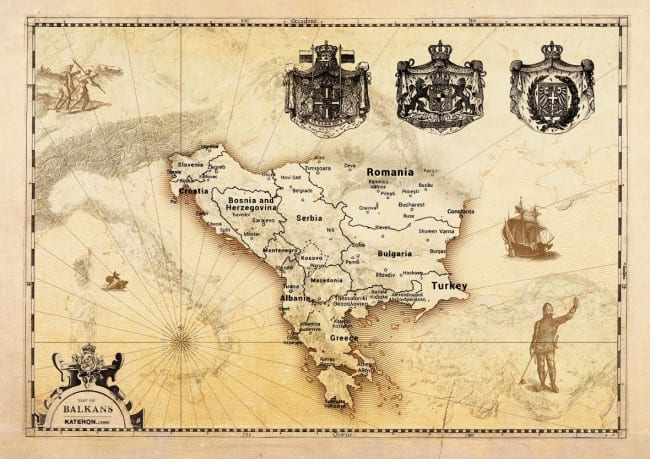
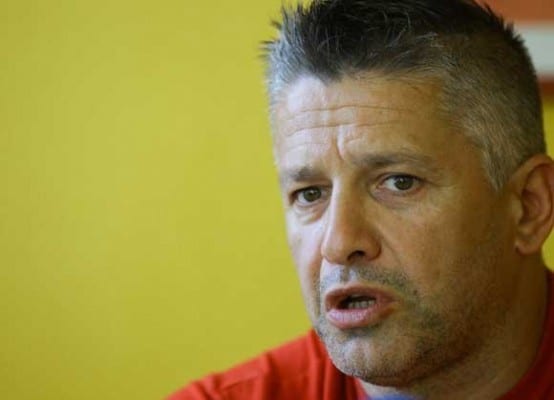
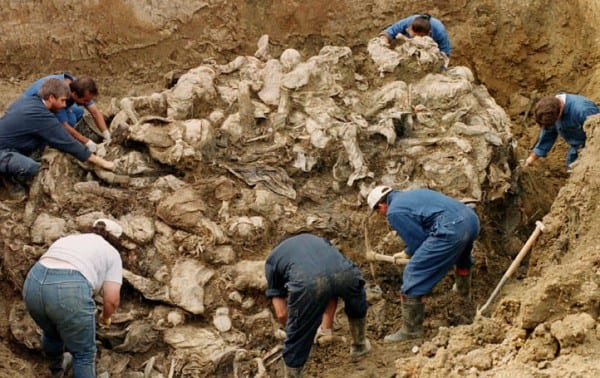
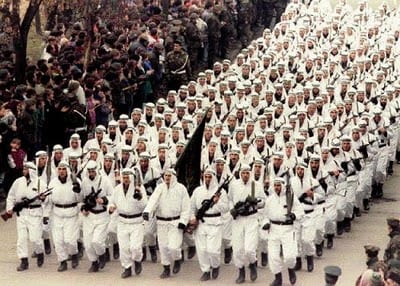


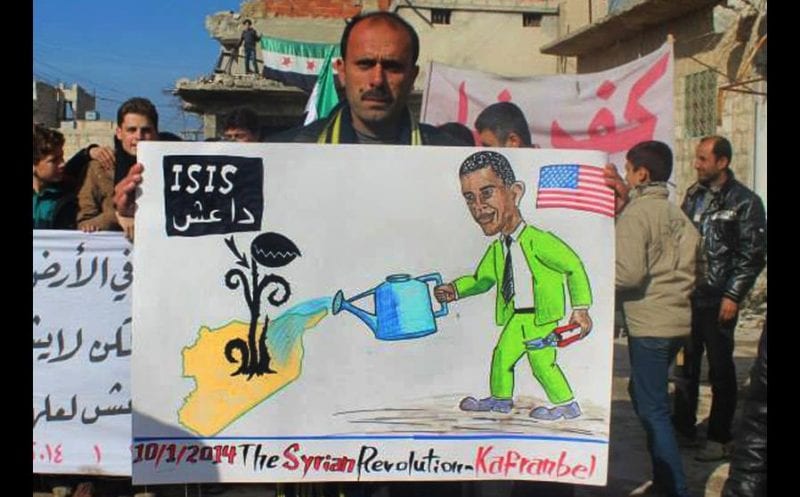
 The New York Times
The New York Times 